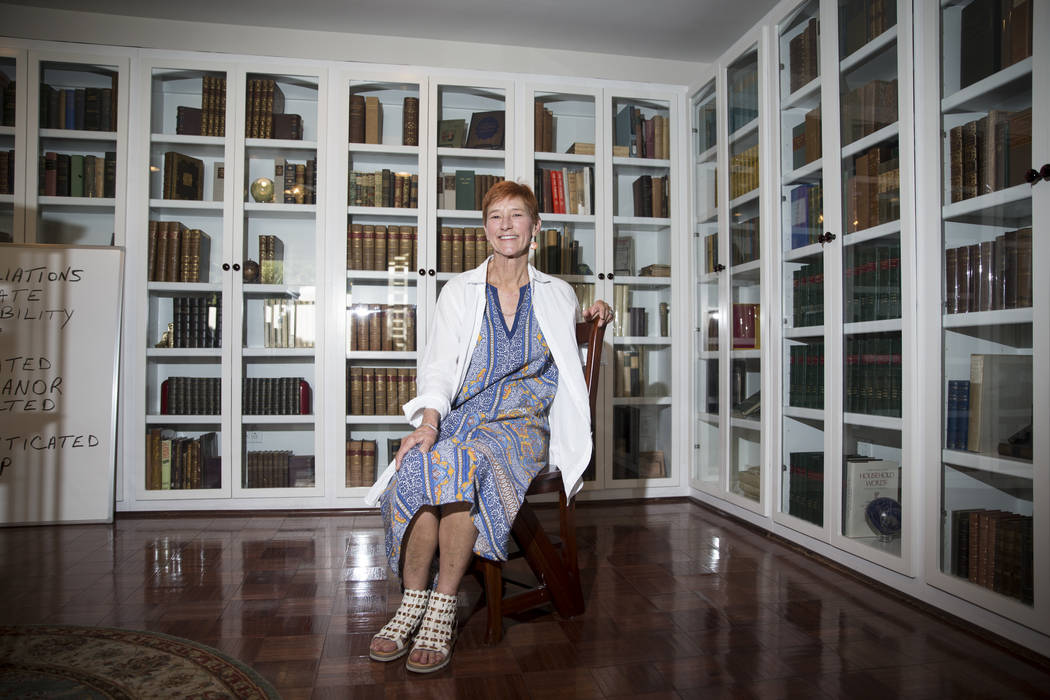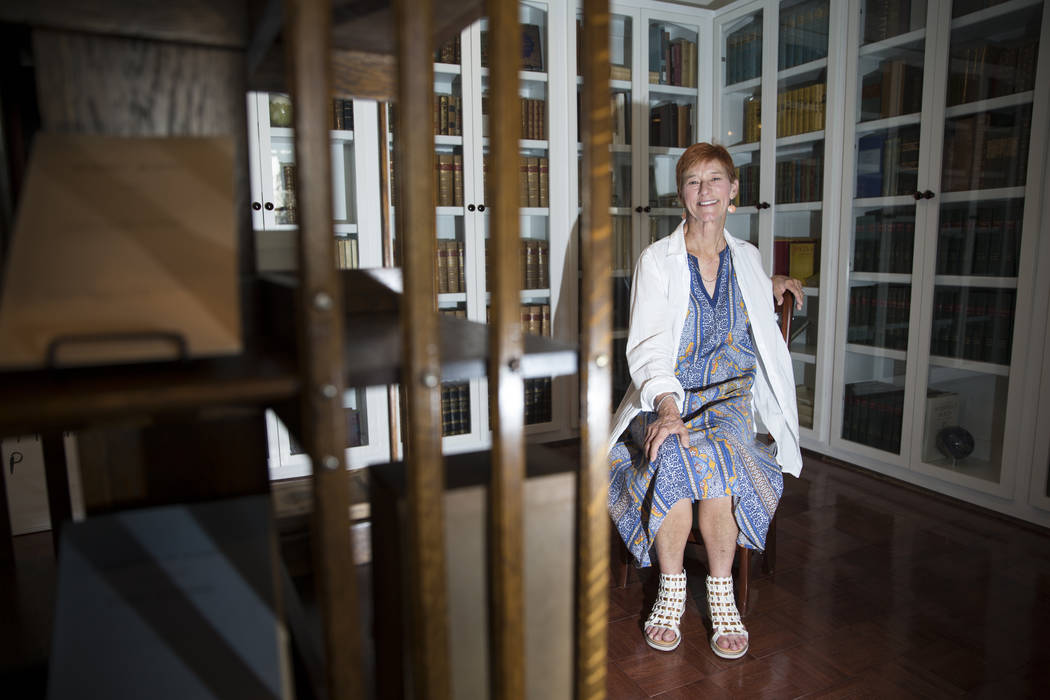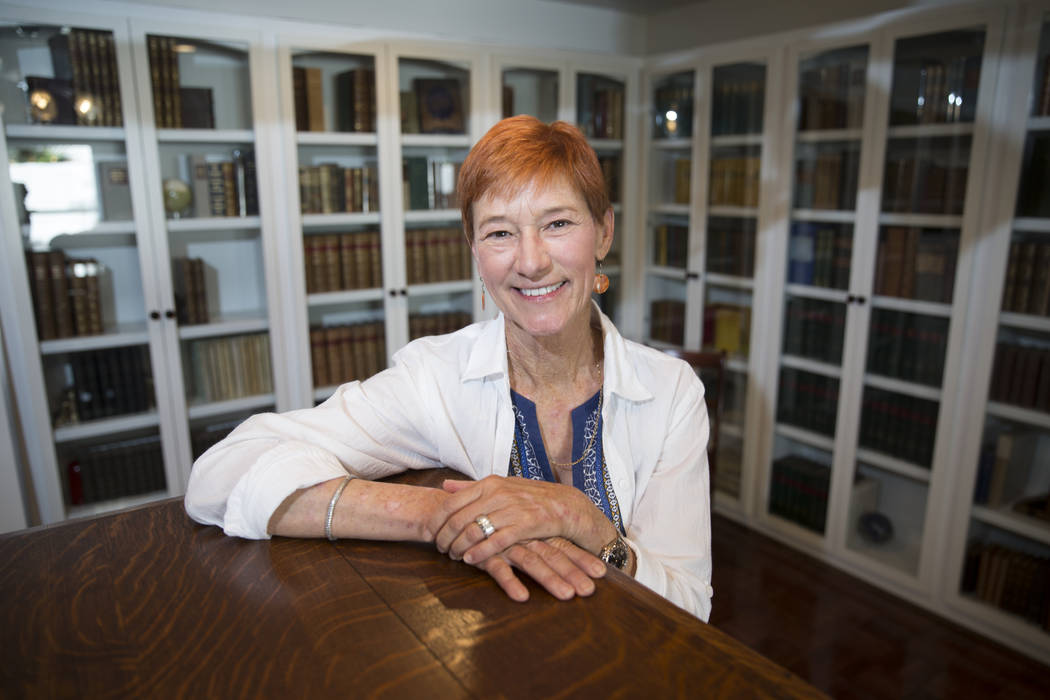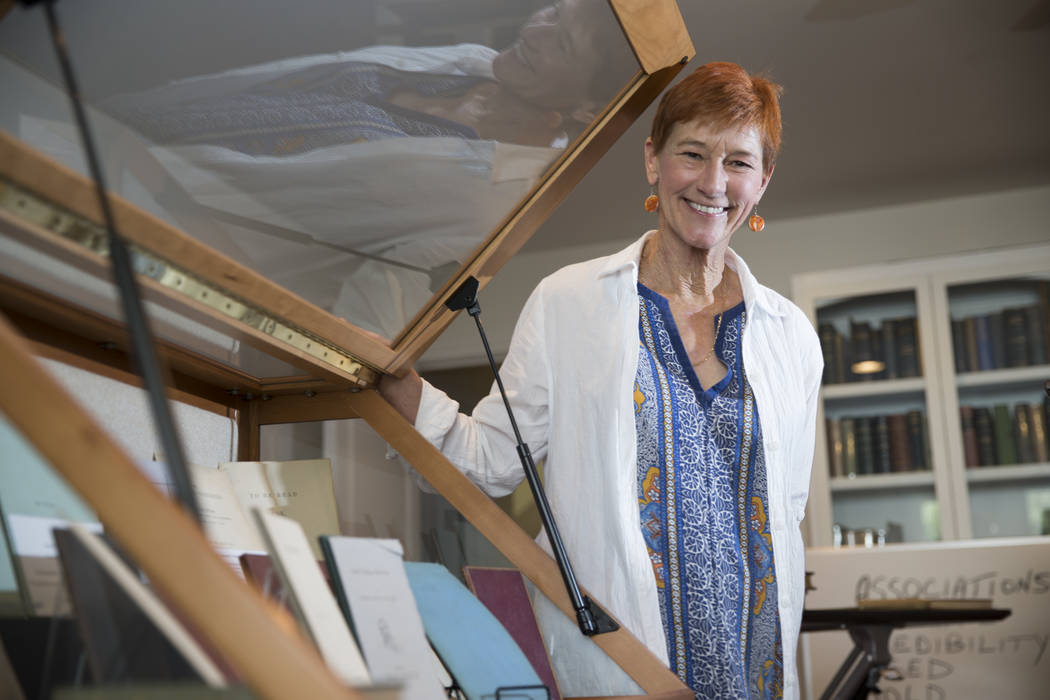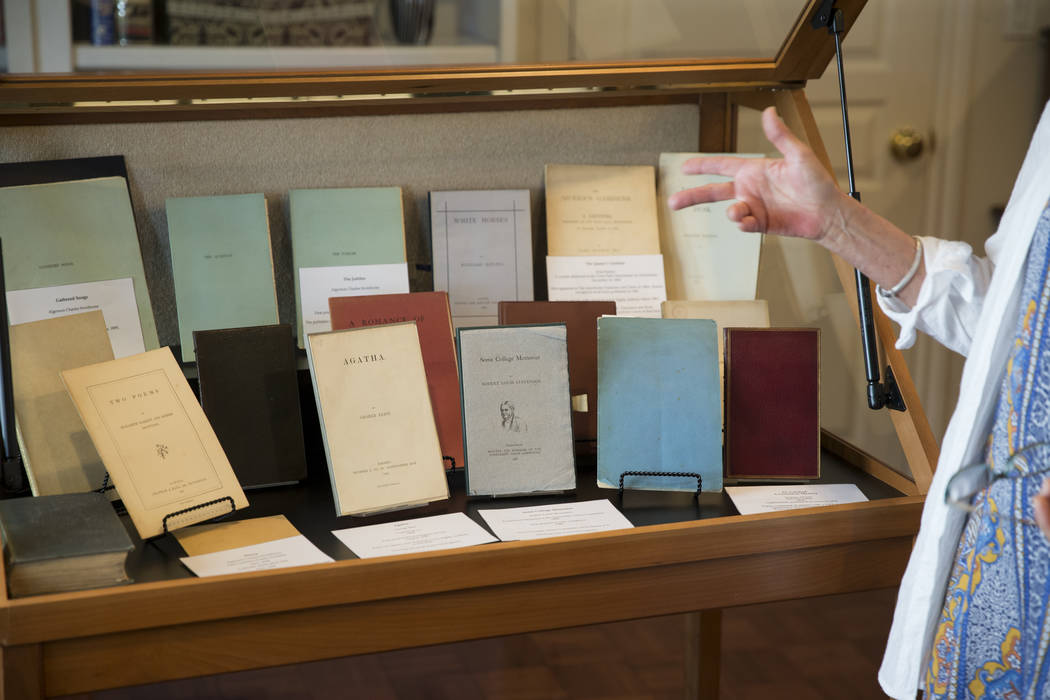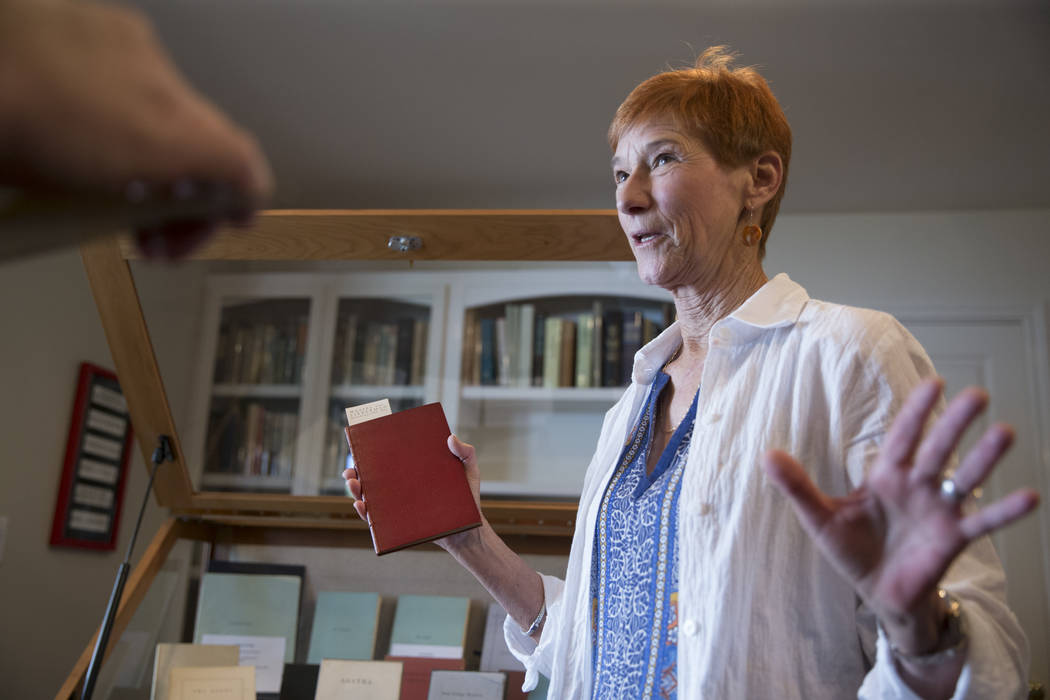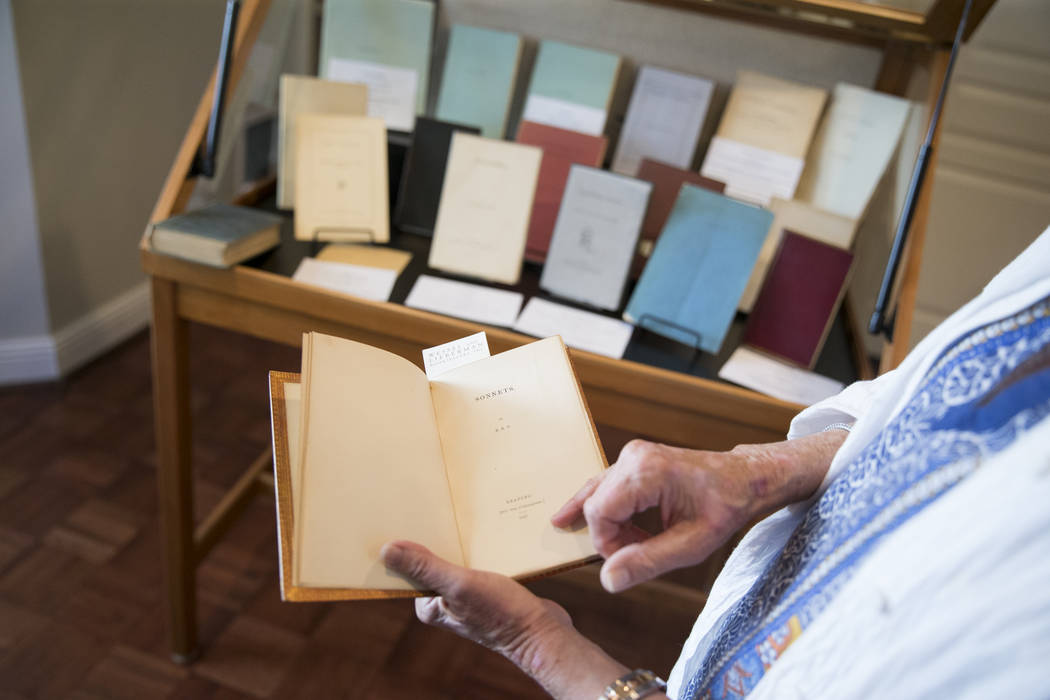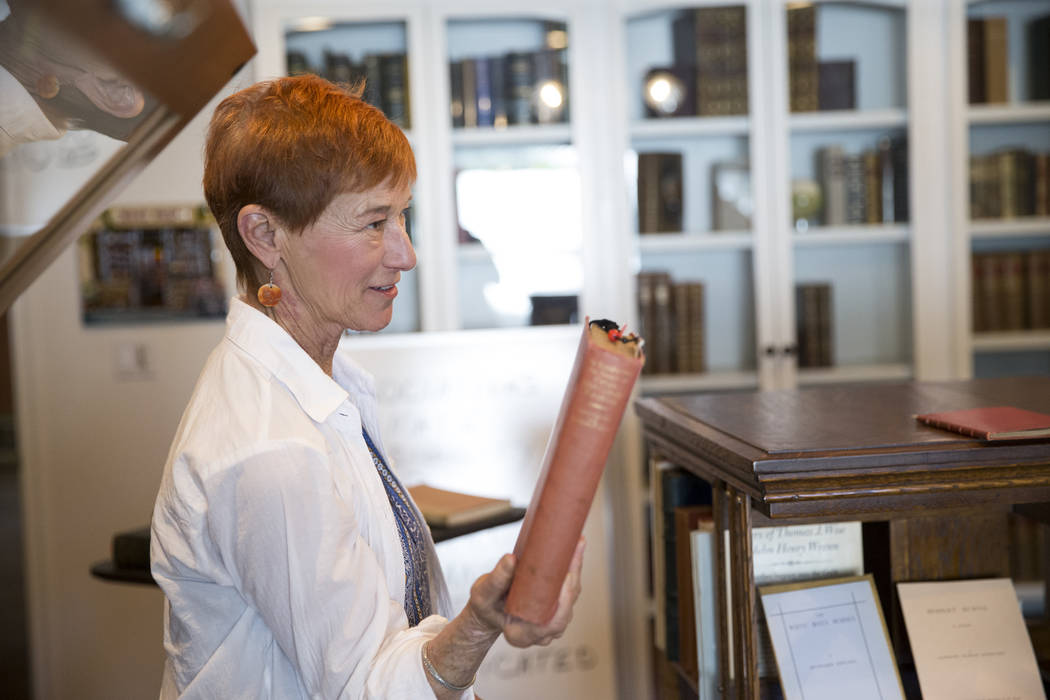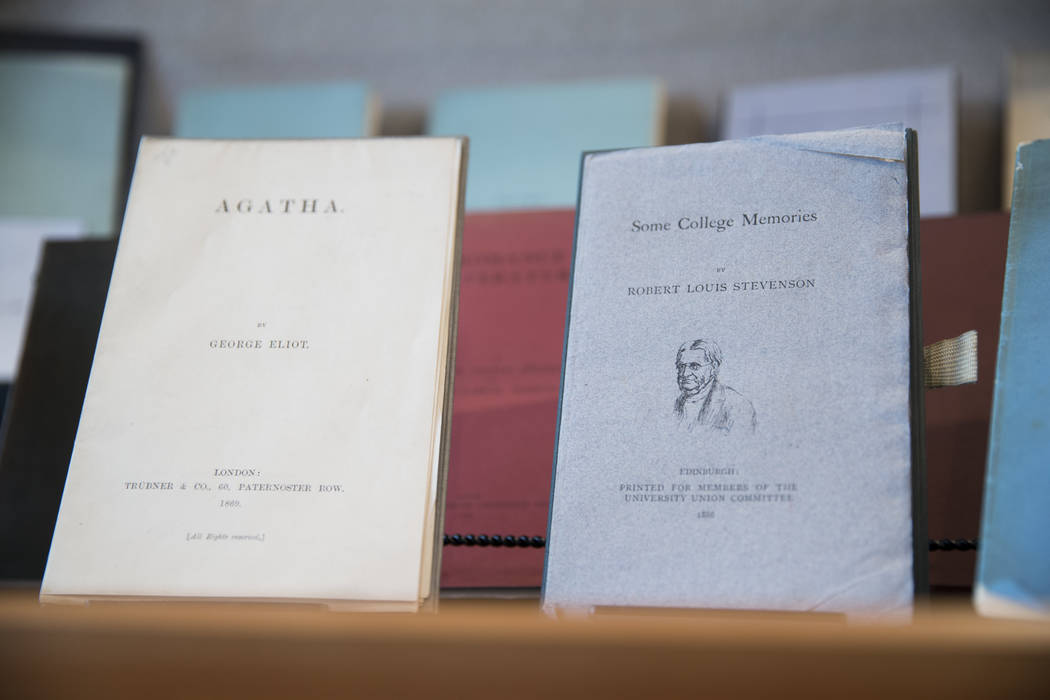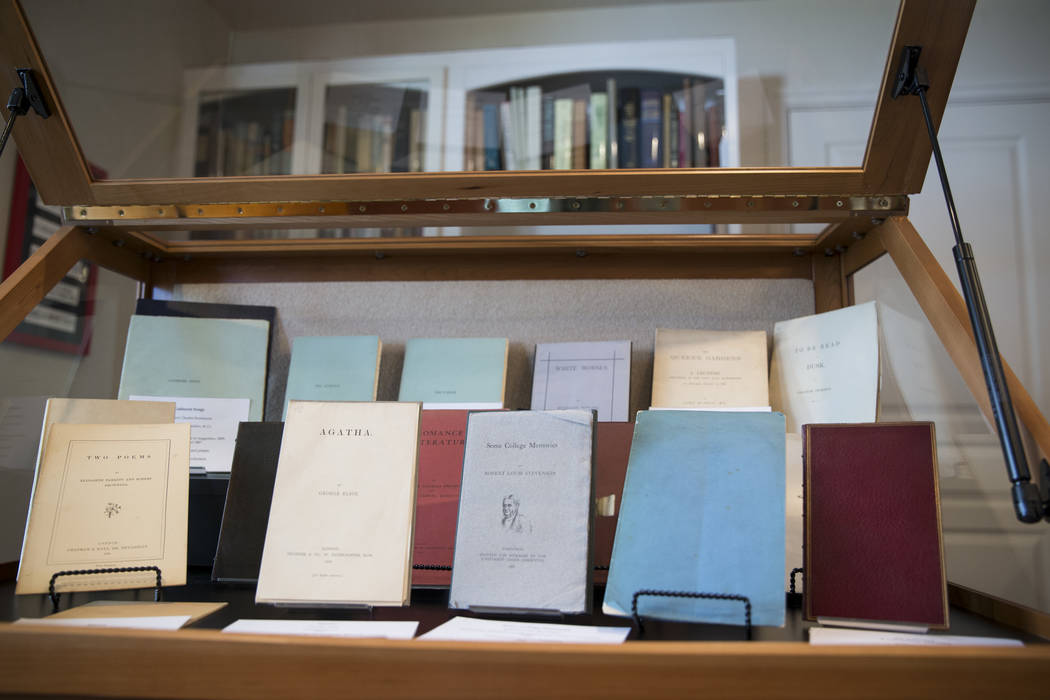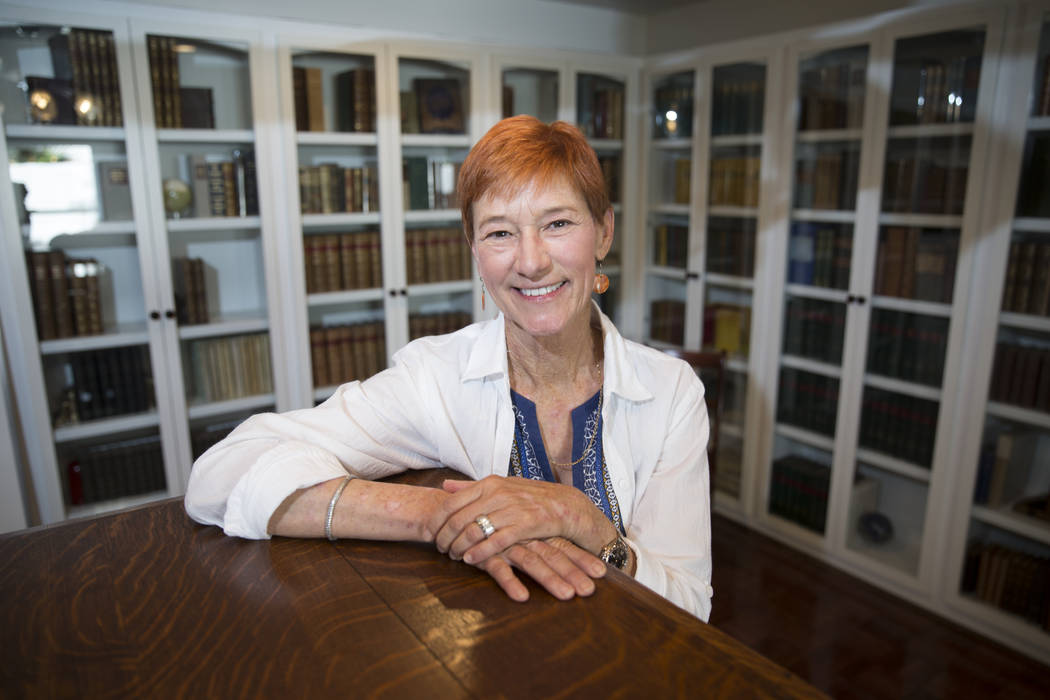Las Vegas philanthropist collects rare forged books — VIDEO
If he had a sense of irony, Thomas J. Wise would find it hilarious that the books he published decades ago are prized by rare book collectors today.
Wise isn’t an author, editor, publisher, poet or playwright. He’s a forger and thief who bilked late 19th and early 20th-century bibliophiles into buying fake editions of works by such literary giants as Tennyson, Wilde, Kipling, Keats and Elizabeth Barrett Browning.
Today, the bogus volumes Wise crafted sell for big bucks and are prized among aficionados of rare literary oddities, including prominent Las Vegas philanthropist and longtime book collector Beverly Rogers. She discovered Wise after earning her master’s degree in literature at UNLV, and has acquired about 30 of Wise’s forged works, some of which have sold for as much as $5,000 depending on quality and rarity.
Rogers — whose significant support of the Black Mountain Institute at UNLV led to its renaming in her honor — became fascinated by Wise’s forgery career. It lasted a few decades, effectively ending in 1934, when his fakery was revealed in a book that Rogers says “read like a phenomenal detective story.”
It’s estimated that Wise forged more than 100 titles by 22 Victorian authors, although Rogers says “there are still some being discovered.”
Wise’s ersatz empire began to crumble after the publication of “An Enquiry Into the Nature of Certain Nineteenth Century Pamphlets” by John Carter and Graham Pollard — the book that revealed Wise’s fakery.
Booksellers and others had “noticed there were a lot of privately printed pamphlets at auction,” Rogers says, referring to short pieces of work taken from authors’ full first editions. “Before 1888, virtually no pamphlets or privately printed pamphlets were sold at auction. But they just started appearing in droves.”
Carter and Pollard tested more than 50 “first editions” and found they were suspiciously unopened and had not been inscribed to friends or relatives, which was commonplace at the time.
They also chemically tested the pages of Browning’s “Sonnets from the Portuguese” and found that the 1847 volume was printed on paper that wasn’t available until at least 1868. Nor was the font.
“That pretty much nailed it,” Rogers says.
Wise died three years after the investigation results were published, never admitting guilt or offering an explanation of any kind.
He had made a living as a traveling essential oils salesman, and was himself a legitimate book collector and became well-known in the literary societies that started becoming popular at the time.
“As far as anyone knows he had no formal education, but he was really good at learning what it took to ingratiate himself,” Rogers says. “I think it was just ego. He wanted to be respected.”
Rogers, whose vast collection of books includes titles by Joseph Conrad, John Steinbeck and George Eliot, says she’s also fascinated by “the geeky minutia” — about paper and typography and the technical and mechanical processes — involved in creating a book.
Not to mention, in the case of Wise, “the convoluted things people will do to make money,” she jokes.
She has come to know Wise and his misbegotten literary career so well that she even has given presentations about him.
Rogers says her primary motivation for collecting Wise’s work is simply that it’s fun. But aren’t forged first editions a weird sort of niche for a serious book collector? Rogers laughs.
“Yep, but a lot of people have weird niches.”
Contact John Przybys at reviewjournal.com or 702-383-0280. Follow @JJPrzybys on Twitter.
'Master' of fabrication
To buttress his fakery, Thomas J. Wise would plant his fraudulent volumes at auctions. When they were sold, records would be kept of the prices paid and the buyers.
"He'd just fabricate stories about why this author printed this private publication and people would believe it," says collector Beverly Rogers. "So he always had a back story. He was really good at that."
However, later in his life, Wise indulged in another — and, some book lovers might argue, a more heinous — sort of literary crime: Stealing pages out of rare books in the British Museum.
"He wanted to enhance his own copies, so he'd take leaves out of books that were in better condition than his."
It later was estimated that Wise had stolen a total of 206 leaves from early 17th century plays in the museum, 89 of which were found in his own copies of the plays, Rogers says.
How'd he do it?
Thomas J. Wise's literary crimes took a variety of forms. One was piracy, or outright copying a book without permission and sell it to unwary collectors.
But more intriguing, and more involved, were his "creative forgeries," Beverly Rogers says, when Wise took a section of a speech, poem, political tract or another piece of writing and publish it as a supposed limited-edition, limited-circulation pamphlet intended only for the author's family or friends.
Wise typically included a publication date that predated existing, legitimate first editions of the work, whetting collectors' appetite for the seemingly earlier, but completely fake, first edition.



